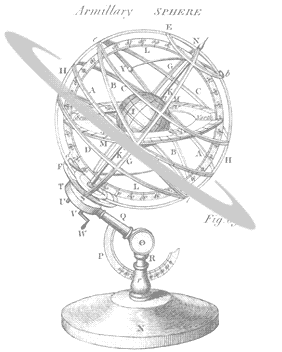

Spring Quarter 2025
Prof. Jim Schombert
Office: 461 Willamette, 6-5214
Office Hours: MWF 3-4
email: jschombe@uoregon.edu
Course Content:
Stars are directly, or indirectly, the source of all the
energy necessary to sustain life on our world. This course will study
the birth, evolution and death of stars in the Milky Way galaxy, with a
particular emphasis on the underlying science behind stellar and
galactic evolution, the observational aspect to astronomy and
our knowledge of how the Universe operates on the stellar scale.
The goals of this course are:
Course Organization:
All lectures in this course will be delivered electronically. The lecture pages will be on the Web in HTML (hypertext mark-up language) format so that they are accessible from any computer, either at home or on campus. All students are required to obtain University computer accounts (or any Internet server of your choice) since all the course material is in Web format and all quiz assignments will be on the class website. The address for this course is pages.uoregon.edu/jschombe/ast122.
We are using the computer network in this class for several reasons:
Use the email system. Often professors only hear from students through office hours, and those students are usually the ones having trouble in the course. When you study or review your notes, send me questions by email (jschombe@uoregon.edu). Also email me suggestions and comments about the course, particularly in the first few weeks in order to have an impact during the term.

On-line Quizzes:
In order to get you to engage the lectures, the course has a quiz at the end of each web lecture. At the bottom of each lecture you will find a "quiz" button. Hit it and take a quiz of 10 questions. You can restart a quiz at any point, take it with open book, notes or web pages. Please do your own work for these quizzes. They are learning exercises and cheating on them will only lower your exam score as you will miss critical material.
These quiz questions count the same as an exam question. Your final grade will be based on the exam scores plus quiz scores. Not doing the quizzes will be the same as not taking an exam and subject to a failing grade. You will find that the quiz material comes from the web lectures and things discussed in class.
NOTE, you have only a limited window to take the quiz, the schedule is posted on the class web page (typically you have a few days after the lecture). Miss the date and you will be unable to take the quiz (the point of the quizzes is to get you to study before the night of the exams, hence the deadline). The quiz answers and scores are posted after the deadline. For this reason you cannot submit your quiz answers late. The answers are posted and late submission will not be allowed regardless of the excuse.
Due to the large number of quizzes, it is highly likely that you will miss a quiz deadline or your dog will eat the internet the night before they are due. Thus, each student will be allowed to drop the three lowest quiz scores for the final grade. If you miss three quizzes, then those three zeros are dropped. If you answer all the quizzes on time, then your three lowest scores will be dropped. If you miss more than three quizzes you will be dropped 1/3 a letter grade (i.e. B+ to B) per group of three that you miss in a step-like fashion (i.e., you miss 1-3 quizzes, no penalty; miss 4-6 quizzes, you lose 1/3 a grade, miss 7-9 quizzes, you lost 2/3's a grade, etc.).
To summarize:
Grading:
Grading will consist of the following:
The three exams are large, difficult multiple choice exams. Each exam covers 1/3 of the course. The exams are designed using material from the lectures and the textbook, so mastery of both is required for a good grade. Not taking an exam will automatically fail you from the course. If you miss an exam due to illness you must contact me as soon as possible after the exam and before the next exam. You must take the make-up exam *before* the next exam.
The exams will be administered on-line at the dates posted on the main webpage. As we approach the first exam I will send our more detailed instructions.
Notice there is no final exam during final exam week. The three exams taking during the classtime consist of all the exams towards your grade.
Your grade will be based on the sum of the quiz and exam scores. You must maintain an average of greater, or equal, to 45% to pass the course. Above that score, your grade is ranked compared to other students and your grade is assigned based on that rank using a standard bell curve. The class website has a button to find out what your current grade is, which is activated after the first exam. Note that the exams are worth more than the quizzes, failing all the exams will mean you fail the course, regardless of your quiz scores.
Textbook:
Some students are uncomfortable with a pure web-based course and would prefer a textbook to study. However, this textbook is optional, there should be plenty of material in the lectures to study for quizzes and exams. The suggested readings are at the top of every lecture and quiz.
The optional textbook for this class is Schneider & Arny "Pathways to Astronomy", and the reading assignments are (note you can purchase an electronic version at McGraw-Hill or hardcopy at amazon.com.
| Lecture | Chapter |
|
Lecture 1 Lecture 2 Lecture 3 Lecture 4 Lecture 5 Lecture 6 Lecture 7 Lecture 8 Lecture 9 Lecture 10 Lecture 11 Lecture 12 Lecture 13 Lecture 14 Lecture 15 Lecture 16 Lecture 17 Lecture 18 Lecture 19 Lecture 20 Lecture 21 Lecture 22 Lecture 23 Lecture 24 Lecture 25 Lecture 26 |
Units 4, 10 Units 5, 13, 6, 8 Units 14, 15, 21 Units 21, 22, 25, 30 Units 23, 24 Units 12, 16, 20 Units 26, 27, 28, 29, 30 Unit 52 Units 55, 57 Units 56, 57 Units 50, 58 Unit 49 Unit 60 Units 59, 61 Units 62, 63, 69 Unit 64 Unit 65 Unit 66 Unit 67 Unit 53 Unit 68 Unit 72 Unit 72 Unit 72 Unit 70 Unit 71, 73 |
There are also free textbooks on-line such as Astro 2e.
Accommodations, Reporting, Misconduct, Weather, Basic Needs:
For information on Accommodations, Reporting, Misconduct, Weather or Basic Needs consult this link.